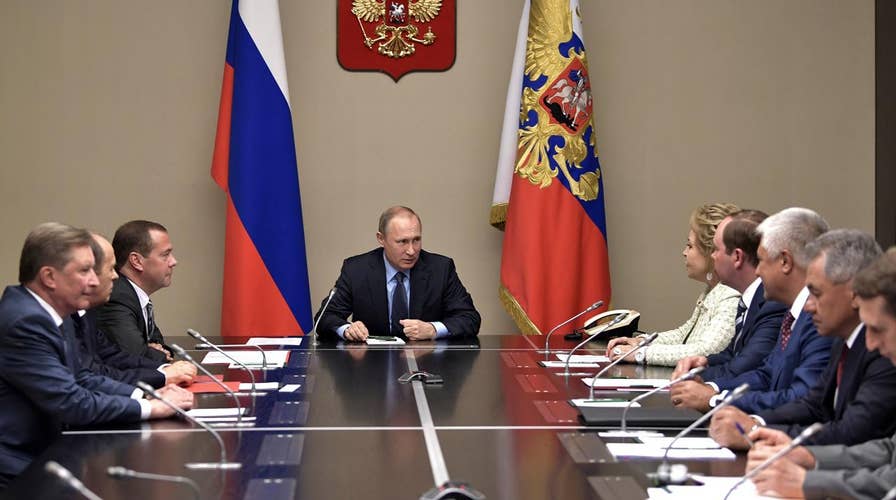Russia strikes back against new US sanctions
Insight from Josh Lederman, foreign policy reporter for the Associated Press
At the same time President Trump was signing punishing sanctions against Russia for meddling in last year’s elections, Vladimir Putin was sending his frenemy in Washington a message: don’t mess with us.
Among the many provocations by Russia since Trump took office, the launching of military exercises later this summer near its borders with the Baltic states may be the one that catches the Pentagon’s attention most urgently.
More than 100,000 of Putin’s finest fighting forces will be engaged in an operation known as Zapad – Russian for West – in the farthest reaches of Russia’s borders with Belarus and Latvia, and uncomfortably close to NATO positions just across the Baltic Sea.
Harry J. Kazianis, director of defense studies at the Center for the National Interest, says Putin isn’t being coy. “What he’s trying to do is show that the Russian military is back,” says Kazianis. “For years, he’s been rebuilding Russia’s capability to wage war. Now he wants to show off what he has.”
Putin is telling the West -- especially Trump -- we are a great military power again.
Aside from big guns and fancy uniforms with lots of brocade, Russia, under Putin’s direction, has spent billions in the past decade to retool a military that had been allowed to decay after the collapse of the Soviet Union. The Kremlin has invested heavily in so-called command and control – the ability for various units to talk together and work in concerted fashion.
The Zapad exercises will also allow Putin to unveil his pet project: a brand-new tank known as the Armada, which may be the most sophisticated land-based weapon on earth. “It’s a completely new design, unlike anything in the West,” says Kazianis. “It has much more advanced, long-distance guns, and an improved communications system.”
Put all that together, and Putin is telling the West -- but especially Trump -- we are a great military power again.
It’s a message sure to resonate and rankle the president who promises to make America great again. Says Kazianis: “It’s an ego thing for Putin. He can’t very well go to the Russian people and say the economy is doing well. The economy stinks.”
NATO’s worst fear is that Russia will leave a sizeable portion of its troops camped along the border with Belarus and Latvia. That would only escalate the sense of alarm that Poland and Lithuania have expressed in recent months.
In years past, when Russia sent large troop deployments toward the Baltic states, military commanders from the Kremlin and NATO would exchange detailed information about troop movements, to prevent misinterpretation and possible over-reaction. This year, there has been no communication between NATO and Russia about the maneuvers.
“I think NATO should be concerned, says Kazianis. “If we learned anything from the Ukraine invasion in 2014, it’s that the Russians have the ability to mobilize very quickly and move fast.”
Most ominously, that invasion and the annexation of Crimea in eastern Ukraine began with a series of military maneuvers at the border between the two countries.

